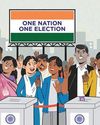
Covid-19 was no surprise. After SARS (2003) and MERS-CoV (2012), it was only a matter of time before another lethal coronavirus stung us. Why were we unprepared? Let me rephrase that question: Why did we let it happen again?
We failed to prevent it because we failed to recognise a truth that stares us in the face. It would be more correct to say we refuse to recognise it. Here is a litany of the landscape of this very inconvenient truth: Yellow fever, Zika fever, dengue, chikungunya, Ebola, SARS, Nipah virus, Kyasanur Forest disease, MERS-CoV, rabies, Rocky Mountain spotted fever, sleeping sickness, Hantavirus, Japanese encephalitis, malaria and counting.
Though these diseases are widely different, their landscape of origin is the same. And, it is a shockingly familiar one, no matter where you live.
It is a landscape without trees.
All the listed diseases emerged—or reemerged more virulent and dangerous—as a result of human encroachment on forests. Historically, we might trace them to tropical rainforests, but right now we must look closer to home. Because the forest was, till very recently, right here somewhere. In and about your housing colony. Around that gated highrise and its adjacent slum. Diseases emerge when we clear forests, cut down trees, flatten hills, dam rivers and squat on all this usurped territory. Within a 5km radius of my home are breeding grounds for at least seven of those listed diseases. But do we ever notice?
If we go by environmental policy alone, disease is the default position.
We brag that our species achieved 12 extinctions last year, mostly insects one is duty-bound to squash. We have shoot-on-sight orders for other vermin. Our babies imbibe DDT in their very first mouthful of milk. Can policy do more? Yet all it takes is a virus to push us to the brink of extinction. Let us look at why we should have expected Covid-19.
Denne historien er fra March 29, 2020-utgaven av THE WEEK.
Start din 7-dagers gratis prøveperiode på Magzter GOLD for å få tilgang til tusenvis av utvalgte premiumhistorier og 9000+ magasiner og aviser.
Allerede abonnent ? Logg på
Denne historien er fra March 29, 2020-utgaven av THE WEEK.
Start din 7-dagers gratis prøveperiode på Magzter GOLD for å få tilgang til tusenvis av utvalgte premiumhistorier og 9000+ magasiner og aviser.
Allerede abonnent? Logg på

Pressure Points
Author and MP Shashi Tharoor and motivational speaker Gaur Gopal Das on how to find healing and meaning in today's world

War Over Wounded Earth
For the BJP andthe Congress, the ravaged farmlands of Vidarbha represent a cxitieal battleground in their larger struggle to win Maharashtra

Say no to continual elections
Following the recommendations of a high-level committee led by former president Ram Nath Kovind to streamline the widely scattered schedule of national, state and local elections, the Union cabinet has reportedly approved two constitutional amendment bills for likely introduction in Parliament. Predictably, the return of the ‘one nation, one election’ issue to news has set off a flurry of objections by several opposition leaders.

Fabulously, fashionably funny
The third season of the Karan Johar-produced Fabulous Lives of Bollywood Wives dropped on Netflix, but articles criticising the show appear in some news site or the other almost daily. If it is so bad, why keep writing about it? And if it is so bad, why would the superpowers at Netflix, who are harder to meet than the prime minister, commission the show season after season?

All in the family
The Chitaras have been passing down the secret art of Mata Ni Pachedi through generations for more than 400 years now

Raise a toast to Vidya Balan
Vidya Balan is a New Year baby. At 45, she is aglow in the most beautiful way, having won the hearts and admiration of countless fans across the world, who watched the supremely talented actor take a public tumble on stage at a high-profile promotional event recently, sharing the platform with no less a dancer than the eternally graceful Madhuri Dixit.

Death no bar
Being alive is not a legal requirement to be elected president of the United States

The Lotus POTUS
You should visit us one of these days— there is so much excitement in our USA! No, I don’t mean the famous USA—the Ulhasnagar Sindhi Association of Mumbai.

RAY OF HOPE
Actor and cancer survivor Lisa Ray talks to oncologist Dr Jame Abraham about inner strength and her surrogacy journey

LEVERAGE AI TO ENHANCE WORK
AT THE WEEK Health Summit, Siddharth Bagga, head (retail, CPG and health care), Google Cloud, elaborated on the significant work that Google has been doing in health care through artificial intelligence (AI).